
Four realisations of composer John Lely's simple but brilliant composition 'The Harmonics of Real Strings', a very slow glissando along the full length of one bowed string, performed by Anton Lukoszevieze; one realization for each string of the cello.
Out of Stock
Quantity in Basket: None
Log In to use our Wish List
Shipping Weight: 3.00 units
Sample The Album:
Anton Lukoszevieze-cello
Click an artist name above to see in-stock items for that artist.
Label: Another Timbre
Catalog ID: at80
Squidco Product Code: 20020
Format: CD
Condition: New
Released: 2014
Country: UK
Packaging: Cardboard Gatefold
Recorded in the music department of the University of East Anglia, Norwich, England on Februaary 23rd, 2014 by Simon Reynell.
"Four realisations of John Lely's simple but brilliant composition 'The Harmonics of Real Strings', which is basically a very slow glissando along the full length of one bowed string. Anton Lukoszevieze plays one realisation on each string of the cello, following the harmonic transformations as they occur and producing an extraordinary example of 'the virtuosity of restraint'. John Lely originally composed the piece in 2006, and it was recorded in April 2014. "When I'm composing I'm learning, asking questions and testing limits. I appreciate the effect of compositional constraints because they reveal something new..."-Another Timbre
Interview with John Lely
'The Harmonics of Real Strings' is one of those simple but brilliant ideas. Can you explain the concept in your own words, and where do you think the idea for the piece came from?
Essentially it's a very slow glissando along the full length of one bowed string. The player uses light finger pressure on the string - what is traditionally referred to as 'harmonic' pressure. There are a few other details, but that's the gist of it. I think the title is a bit of a red herring - I hear a broad range of sounds emanating from the instrument, not just 'harmonics'.
Around the time I wrote the piece I was having trouble sleeping. I would lie awake listening to short-wave radio, scanning through the frequency spectrum, turning the dial in one direction as slowly and consistently as possible. I found myself listening to the process, appreciating the variety of sounds that emerged from the loudspeaker - sounds of gradual transition, sounds as by-products.
I had also been experimenting with very long music strings for some time. A string can have many strange and wonderful characteristics, some predictable, others less so, depending on how it is activated.
So, those were some of the ideas floating around in the background, but I think of them more as aspects of technique that were not really at the front of my mind when I thought of the piece.
You talk about 'experimenting with very long music strings', and your music often has the sense of being 'experimental' in a literal, almost scientific sense. Could you tell us a bit about your background and your work in 'experimental music'?
Actually it was what people call 'experimental music' that made me want to study music in the first place. When I was a teenager I used to listen to late night radio - John Peel and BBC Radio 3. That's where I first got to know the music of Morton Feldman and John Cage, and other American and British experimental composers. Around that time I also found Michael Nyman's 'Experimental Music' book in Norwich library, and I tried playing scores from that with a couple of school friends. So 'experimental music' was my starting point for broader listening, and eventually composing. When I moved to London in 1997, I gradually met more like-minded people, and I started putting on concerts and improvising.
When I'm composing I'm learning, asking questions and testing limits. I appreciate the effect of compositional constraints because they reveal something new, either about the material or about myself. Whatever my material - a long string, a harmony, a silence - I try to put on hold any preconceptions I might have. My focus is on understanding and coming to terms with that material through careful listening. Maybe that's where the 'experimental' comes in for me now.
I take a workshop attitude - learning by trying. I've explored many different forms of music-making over the years. I follow my curiosity. For instance, I've recently spent time visiting the French Cathedrals where polyphonic music first emerged - reverberant spaces which seem to encourage certain ways of singing and listening. Actually, through just being in those spaces and listening to their acoustics I've felt a deeper appreciation for the work of twelfth century composers such as Perotin and Leonin. They were experimenting too.
You talk about 'appreciating the effect of compositional constraints', but I first came across you back in 2000 on an improvisation CD with Seymour Wright and Yann Charaoui. It was released on Eddie Prevost's Matchless label, and at that time you were evidently also involved in improvisation through the weekly workshop that Eddie runs in South London. Is improvisation less of a focus for you now, and if so, why?
I actively pursued improvisation as a practice for a number of years because it enriched my experience of music. Now I find myself thinking more about things that can be written down. My current priorities lie in exploring relational aspects of music such as series, proportion, correspondences between elements, harmony, and what could loosely be called voice leading. Improvisation can at any moment intersect with any of these things, but its inherent unpredictability makes it less relevant to my current work than it once was.
More broadly though, I'm always on stand-by for those special moments in music that excite my imagination. In that sense I don't really differentiate between practices such as composition and improvisation - a piece of music can be based in any number of practices. What I care about is that special arresting quality, when my mind is carried by the music.
I think that's well put. Two years ago you and James Saunders published 'Word Events', which was a kind of critical anthology of text scores, or verbal notation in contemporary music. Could you talk a bit about what has drawn you towards text scores, and is it the principal area that you now work in?
I was probably first made aware of text scores through Nyman's book, and I remember it was Michael Parsons' Walk that really grabbed my attention. Another inspiration was Sol LeWitt's instructions for his wall drawings - I was very pleased that we were able to include his Wall Drawing #960 in 'Word Events'.
For me verbal notation offers a good way to explore the limits of an idea, to get down to essentials. When staff notation falls short, words can be very effective for describing aspects like process, intention, effort, and the general conditions of a piece.
In the case of the first performance of 'The Harmonics of Real Strings', I didn't show Anton a score - I simply spoke with him about the performance beforehand. Gradually, through dialogue with Anton and other string players, I developed a written text that explains the process and answers the most frequently asked questions. Over the years I have talked the piece over with various musicians from quite different musical backgrounds, and I've been able to refine the language of the score in light of those conversations. As with some of my other pieces, I do still sometimes explain the piece orally, but the score continues to serve as a useful point of reference.
Between around 2002 and 2009 verbal notation was usually my chosen medium, though in recent years that has changed. I'm still interested in that paired-down, essential quality, but the written word doesn't seem to be appropriate for what I'm currently doing. My scores are now notated almost exclusively on staff paper.
Could you tell us what kind of things you are currently composing?
I'm composing harmonies, interlocking melodies, mostly for small groups of similar instruments. 'Four Reed Organs' was the first of these works, and I made a piece called 'Doubles' for the Bozzini Quartet Composers Kitchen in 2012. That experience got me back to writing for string instruments. Since then I've been working with the Tre Voci Cello Ensemble at nu:nord, and I made a violin and cello piece for Apartment House's 2014 tour of Russia. I've also been writing for solo instruments - I recently made a long piano piece for Philip Thomas, and this autumn I'm thinking about the violin.

The Squid's Ear!
Get additional information at John Lely Website
Artist Biographies
• Show Bio for Anton Lukoszevieze "Cellist Anton Lukoszevieze (born 1965 in the UK) is one of the most diverse performers of his generation and is notable for his performances of avant-garde, experimental and improvised music. Anton has given many performances at numerous international festivals throughout Europe and the USA (Maerzmusik, Donaueschingen, Wien Modern, GAS, Transart, Ultima, etc.etc.). He has also made frequent programmes and broadcasts for BBC Radio 3, Danish Radio, SR2, Sweden, Deutschland Rundfunk, WDR, Germany and ORT, Austria. Deutschlandfunk, Berlin produced a radio portrait of him in September, 2003. Anton has also performed concerti with the City of Birmingham Symphony Orchestra at the 2001 Aldeburgh festival and the Netherlands Radio Symphony Orchestra. He has collaborated with many composers and performers including David Behrman, Alvin Lucier, Amnon Wolman, Pierre Strauch, Rytis Mazulis, Karlheinz Essl, Helmut Oehring, Christopher Fox, Philip Corner, Alvin Curran, Phill Niblock and Laurence Crane, He is unique in the UK through his use of the curved bow (BACH-Bogen), which he is using to develop new repertoire for the cello. From 2005-7 he was New Music Fellow at Kings College, Cambridge and Kettles Yard Gallery. Anton is the subject of four films (FoxFire Eins) by the renowned artist-filmmaker Jayne Parker. A new film Trilogy with compositions by Sylvano Bussotti, George Aperghis and Laurence Crane premieres at The London Film Festival, October 2008. In November will premiere a new hour long work by Christopher Fox for cello and the vocal ensemble Exaudi commissioned by the Huddersfield Contemporary Music Festival and will also present new solo works for cello and live electronics. Anton is also active as an artist, his work has been shown in Holland (Lux Nijmegen), CAC, Vilnius, Duisburg (EarPort), Austria, (Sammlung Essl), Wien Modern, The Slade School of Art, Kettles Yard Gallery, Cambridge Film Festival and Rational Rec. London. His work has been published in Musiktexte, Cologne, design Magazine and the book SoundVisions (Pfau-Verlag, Saarbrucken, 2005). Anton Lukoszevieze is founder and director of the ensemble Apartment House, a member of the radical noise group Zeitkratzer and recently made his contemporary dance debut with the Vincent Dance Company in Broken Chords, Dusseldorf." ^ Hide Bio for Anton Lukoszevieze
12/17/2025
Have a better biography or biography source? Please Contact Us so that we can update this biography.
Track Listing:
1. IV 16:42
2. III 15:57
3. II 12:08
4. I 11:08
Compositional Forms
Stringed Instruments
Solo Artist Recordings
London & UK Improv & Related Scenes
Search for other titles on the label:
Another Timbre.

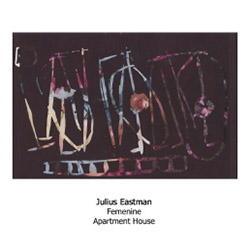

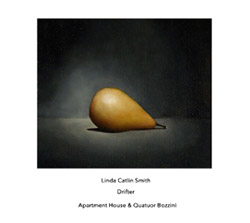




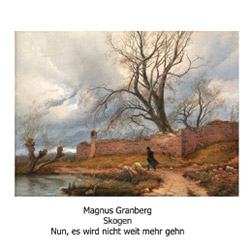
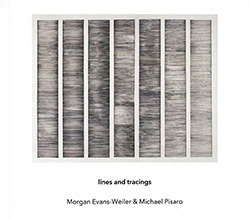


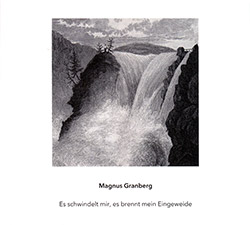





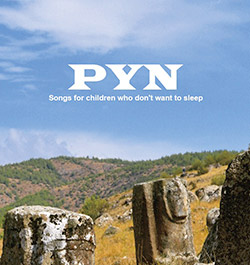









![HobbyHouse (Mia Dyberg / Axel Filip): HobbyHouse [CD + DOWNLOAD]](https://www.teuthida.com/productImages/misc4/36944.jpg)
![Mines, Kelsey / Erin Rogers: Scratching At The Surface [CD + DOWNLOAD]](https://www.teuthida.com/productImages/misc4/36945.jpg)
![Nebbia, Camila (feat/ Marilyn Crispell / Lesley Mok): A Reflection Distorts Over Water [CD + DOWNLOAD]](https://www.teuthida.com/productImages/misc4/36946.jpg)
![Vanheerentals, Adia: Taking Place [CD + DOWNLOAD]](https://www.teuthida.com/productImages/misc4/36947.jpg)
![Mines, Kelsey / Vinny Golia: Collusion and Collaboration [CD + DOWNLOAD]](https://www.teuthida.com/productImages/misc4/36948.jpg)
![Parkins, Zeena: Lament For The Maker [CD + DOWNLOAD]](https://www.teuthida.com/productImages/misc4/36949.jpg)
![Evans, Peter / Mike Pride : A Window, Basically [CD + DOWNLOAD]](https://www.teuthida.com/productImages/misc4/36950.jpg)


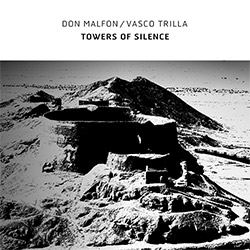
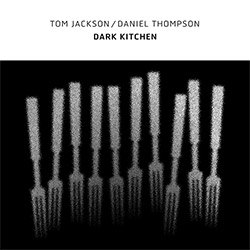
![Frey, Jurg : Composer, Alone [3 CDs]](https://www.teuthida.com/productImages/misc4/36927.jpg)
![Belorukov, Ilia / Alex Riva: Wrestling For Futility [CASSETTE w/DOWNLOAD]](https://www.teuthida.com/productImages/misc4/36994.jpg)
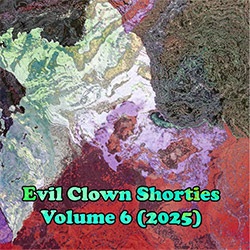
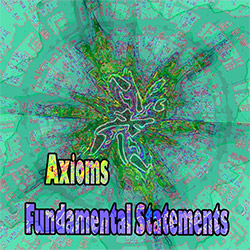










![Agnel, Sophie: Learning [VINYL]](https://www.teuthida.com/productImages/misc4/36841.jpg)

![Monaco, Amanda (w/ Michael Attias / Sean Conly / Satoshi Takeishi) : Deathblow [VINYL+ DOWNLOAD]](https://www.teuthida.com/productImages/misc4/36956.jpg)
![Frey, Jurg with ensemble]h[iatus: Je Laisse A La Nuit Son Poids D](https://www.teuthida.com/productImages/misc4/36988.jpg)
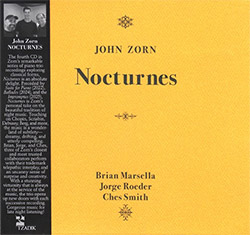
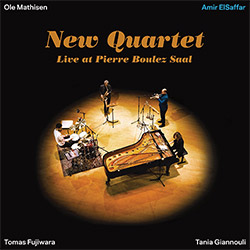
![ElSaffar, Amir / New Quartet : Live at Pierre Boulez Saal [VINYL]](https://www.teuthida.com/productImages/misc4/36830.jpg)

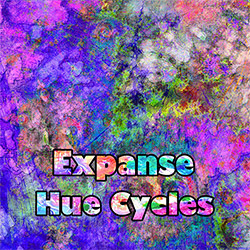
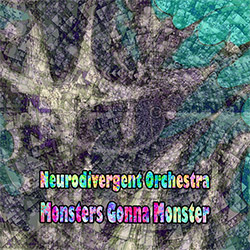
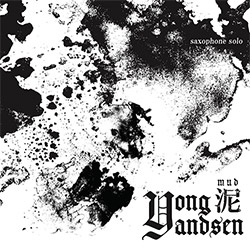

![Musicworks Magazine: #152 Fall 25 [MAGAZINE + CD]](https://www.teuthida.com/productImages/misc4/37004.jpg)
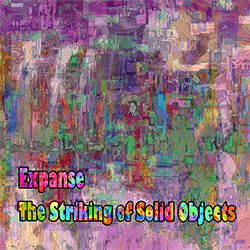




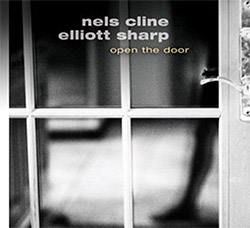
![[ahmed] (Thomas / Grip / Gerbal / Wright): Sama](https://www.teuthida.com/productImages/misc4/36976.jpg)

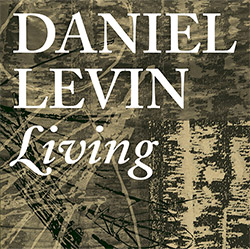
![Cleaver, Gerald / Brandon Lopez / Hprizm: In The Wilderness [COLOR VINYL]](https://www.teuthida.com/productImages/misc4/33060.jpg)
![McPhee, Joe : Defiant Jazz: a Joe McPhee Taster [VINYL]](https://www.teuthida.com/productImages/misc4/36859.jpg)
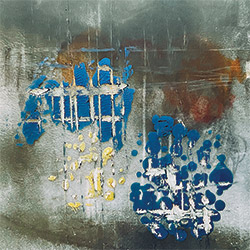
![Mateen, Sabir / Patrick Holmes / Federico Ughi : Survival Situation [LTD VINYL LP + DOWNLOAD]](https://www.teuthida.com/productImages/misc4/29891.jpg)
![Tucker, Dave / Pat Thomas / Thurston Moore / Mark Sanders: Educated Guess Vol. 1 [COLORED VINYL]](https://www.teuthida.com/productImages/misc4/30183.jpg)
![Sarian, Michael / Matthew Putman: A Lifeboat (Part I) [COLORED VINYL]](https://www.teuthida.com/productImages/misc4/30426.jpg)

![Genthon, Anouck / Lionel Marchetti: Suite Blanche [2 CDs]](https://www.teuthida.com/productImages/misc4/36642.jpg)
![Toeplitz, Kasper T.: Erosions Programmees [CD + BOOKLET]](https://www.teuthida.com/productImages/misc4/36639.jpg)
![Gate, The : Amost Live [CASSETTE + MAGAZINE]](https://www.teuthida.com/productImages/misc4/36836.jpg)






![A Magic Whistle: The Solar Cell [VINYL]](https://www.teuthida.com/productImages/misc4/36658.jpg)

![McGee, Hal: Columbus Expedition [Cassette w/ Download]](https://www.teuthida.com/productImages/misc4/36650.jpg)


![Jaeger, Kassel: Fernweh [VINYL 2 LPs]](https://www.teuthida.com/productImages/misc4/36541.jpg)





![+DOG+: The Light Of Our Lives [2 CDs]](https://www.teuthida.com/productImages/misc4/36009.jpg)


![Eternities: Rides Again [CASSETTE]](https://www.teuthida.com/productImages/misc4/36247.jpg)

![Lopez, Francisco: Untitled (2021-2022) [2 CDs]](https://www.teuthida.com/productImages/misc4/36438.jpg)





![Pisaro-Liu, Michael: Within (2) / Appearance (2) [2 CDs]](https://www.teuthida.com/productImages/misc4/36831.jpg)










![Musicworks Magazine: #151 Summer 25 [MAGAZINE + CD]](https://www.teuthida.com/productImages/misc4/36559.jpg)

![Brown, Dan / Dan Reynolds: Live At The Grange Hall [unauthorized][CASSETTE]](https://www.teuthida.com/productImages/misc4/36245.jpg)


![Zorn, John: The Song of Songs [CD + CD BOOK]](https://www.teuthida.com/productImages/misc4/36923.jpg)

![Coultrain: Mundus [COLORED VINYL]](https://www.teuthida.com/productImages/misc4/33056.jpg)
![Hprizm: Signs Remixed [COLORED VINYL]](https://www.teuthida.com/productImages/misc4/30635.jpg)
![Halls Of the Machine: All Tribal Dignitaries [CASSETTE w/ DOWNLOAD]](https://www.teuthida.com/productImages/misc4/36134.jpg)



![Koenjihyakkei: Live at Club Goodman [2 CDs]](https://www.teuthida.com/productImages/misc4/36111.jpg)

![Sorry For Laughing (G. Whitlow / M. Bates / Dave-Id / E. Ka-Spel): Rain Flowers [2 CDS]](https://www.teuthida.com/productImages/misc4/35985.jpg)

![Rolando, Tommaso / Andy Moor : Biscotti [CASSETTE w/ DOWNLOADS]](https://www.teuthida.com/productImages/misc4/36106.jpg)


![Electric Bird Noise / Derek Roddy: 8-10-22 [CD EP]](https://www.teuthida.com/productImages/misc4/35970.jpg)








![Elephant9 : Mythical River [VINYL]](https://www.teuthida.com/productImages/misc4/34624.jpg)



![Elephant9 with Terje Rypdal: Catching Fire [VINYL 2 LPs]](https://www.teuthida.com/productImages/misc4/35355.jpg)
![Coley, Byron: Dating Tips for Touring Bands [VINYL]](https://www.teuthida.com/productImages/misc4/17906.jpg)

![Lost Kisses: My Life is Sad & Funny [DVD]](https://www.teuthida.com/productImages/misc4/lostKissesDVD.jpg)